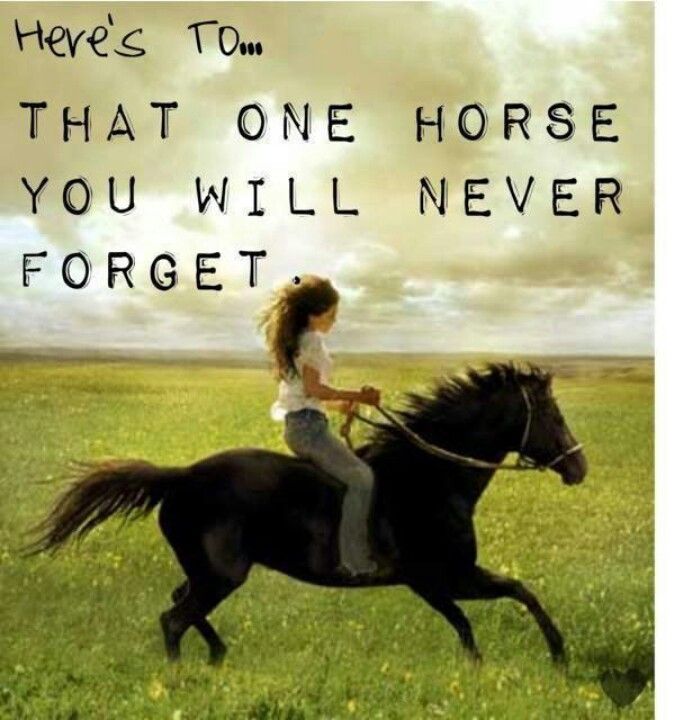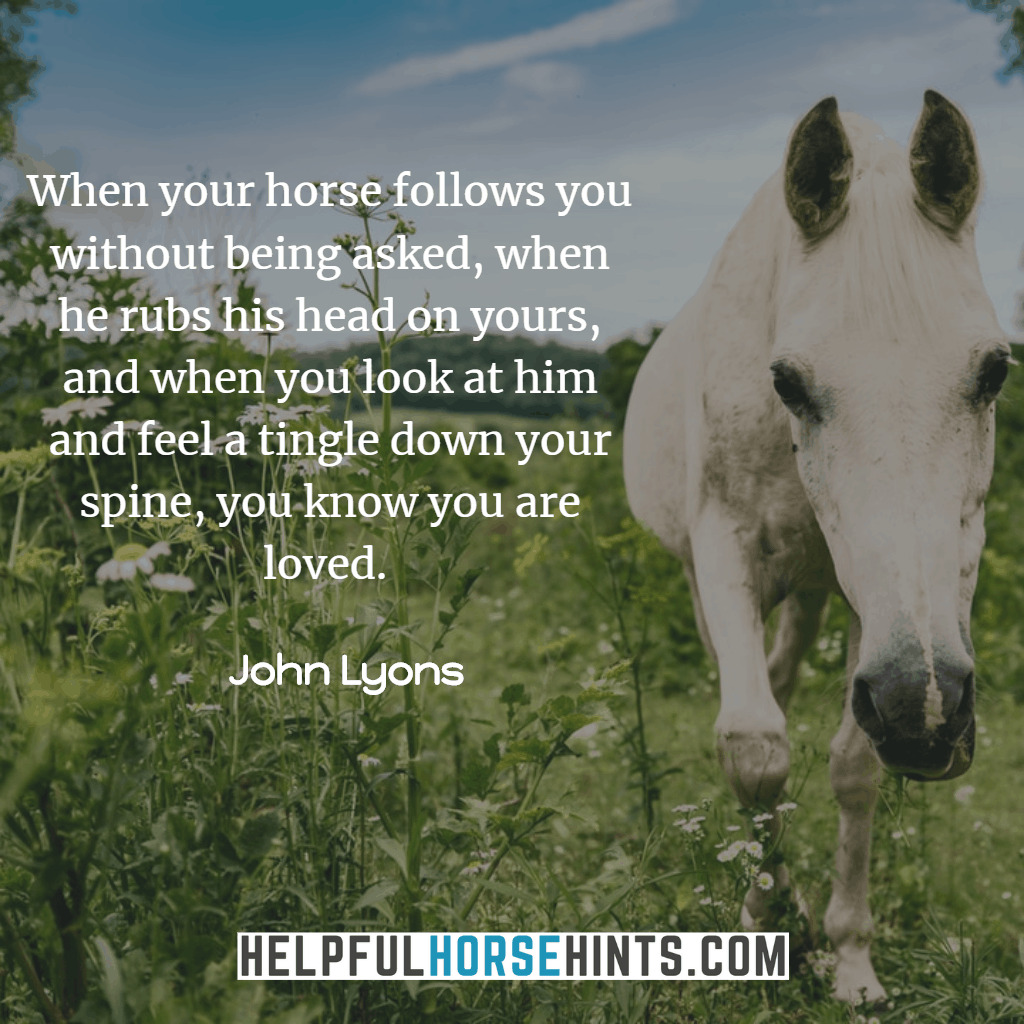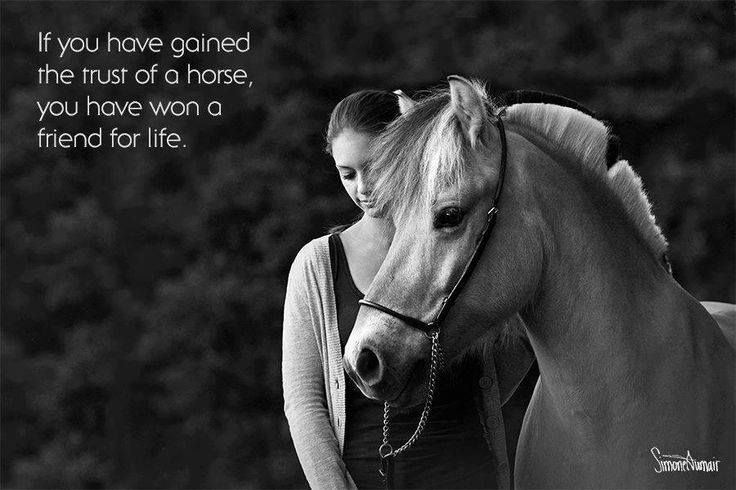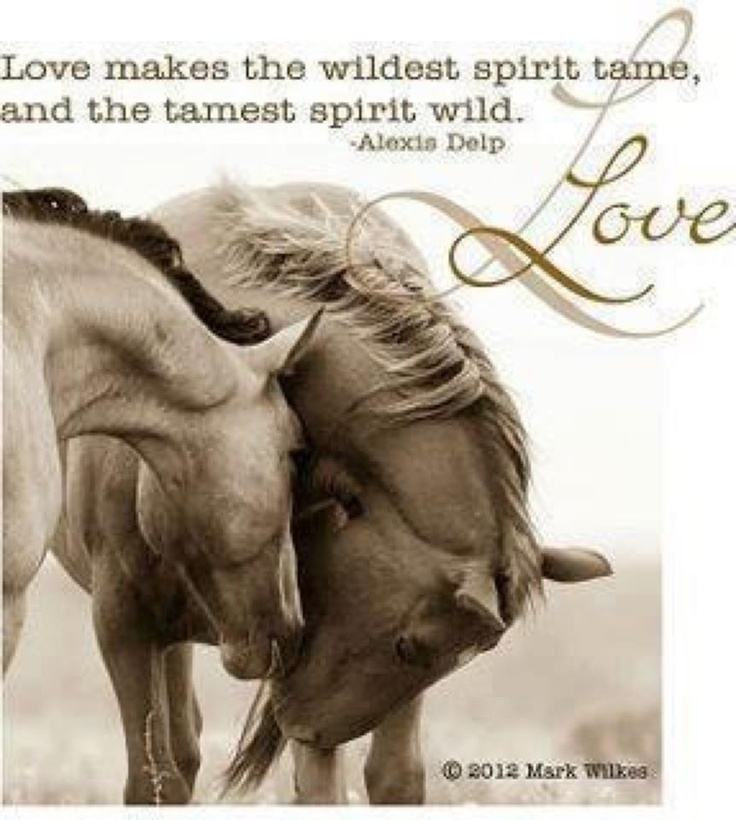The Power of Trust in the Human-Horse Relationship
Trust is the foundation of any successful relationship, and the human-horse bond is no exception. When a horse and rider trust each other, they can achieve great things together, from navigating challenging trails to competing at the highest levels of equestrian sports. But trust is not something that can be taken for granted – it must be earned and nurtured over time.
At its core, trust is about mutual respect and understanding. When a horse feels safe and supported, it is more likely to respond to its rider’s cues and trust their judgment. Similarly, when a rider feels confident in their horse’s abilities and temperament, they are more likely to trust their instincts and make decisions that benefit both partners.
Building trust with a horse requires patience, consistency, and clear communication. It involves establishing a routine and sticking to it, using positive reinforcement training methods, and avoiding punishment or negative reinforcement. It also requires a deep understanding of equine behavior and body language, as well as the ability to read and respond to a horse’s emotional state.
When trust is present in the human-horse relationship, it can lead to a deeper and more meaningful connection between horse and rider. This connection is built on a foundation of mutual respect, trust, and communication, and it allows both partners to work together seamlessly and achieve great things.
As the saying goes, “trust is like a mirror – once it’s broken, it can never be the same.” But with patience, consistency, and clear communication, it is possible to build and maintain trust with a horse over time. By doing so, horse and rider can form a bond that is strong, resilient, and unbreakable – a bond that is built on the power of trust.
As we explore the importance of trust in the human-horse relationship, we can draw inspiration from quotes about horses and trust. These quotes remind us of the value of trust, loyalty, and faith in our relationships with horses, and they offer valuable insights into the human-horse bond.
Learning to Trust: How Horses Teach Us About Faith and Loyalty
Horses have a unique ability to teach us valuable lessons about trust, faith, and loyalty. Through their gentle nature, intuitive behavior, and unwavering commitment, horses demonstrate the importance of building strong relationships based on mutual respect and understanding.
One of the most significant lessons horses teach us is the value of trust. When a horse trusts its rider, it is willing to follow their lead, even in uncertain or challenging situations. This trust is built on a foundation of clear communication, consistent behavior, and a deep understanding of each other’s needs and boundaries.
Horses also teach us about the importance of faith. When a horse has faith in its rider, it is willing to take risks and face challenges with confidence. This faith is built on a foundation of trust, respect, and a deep understanding of each other’s capabilities and limitations.
Loyalty is another essential lesson horses teach us. When a horse is loyal to its rider, it is committed to their partnership and will stand by their side through thick and thin. This loyalty is built on a foundation of trust, respect, and a deep understanding of each other’s needs and boundaries.
These lessons can be applied to our everyday lives in many ways. By learning to trust, have faith, and be loyal, we can build stronger relationships with others, whether personal or professional. We can also develop greater self-awareness, self-confidence, and emotional intelligence, leading to a more fulfilling and purposeful life.
As we reflect on the lessons horses teach us, we can draw inspiration from quotes about horses and trust. These quotes remind us of the importance of building strong relationships, being loyal and committed, and having faith in ourselves and others.
For example, “The horse is a mirror to the soul,” reminds us that horses reflect our inner selves, and that building a strong relationship with a horse requires self-awareness, self-reflection, and a deep understanding of our own needs and boundaries.
Another quote, “Trust is the glue that holds the horse and rider together,” highlights the importance of trust in building a strong partnership between horse and rider.
By learning from horses and incorporating these lessons into our daily lives, we can build stronger relationships, develop greater self-awareness, and live a more fulfilling and purposeful life.
Overcoming Fear and Building Trust with Horses
Fear and mistrust can be significant barriers to building a strong relationship with a horse. Whether you’re a seasoned equestrian or a beginner, it’s essential to address these emotions and establish a foundation of trust with your equine partner.
The first step in overcoming fear and building trust with horses is to understand that horses are prey animals, and their natural instinct is to flee from perceived threats. By recognizing and respecting this instinct, you can begin to build trust by creating a safe and calm environment.
Gentle communication is key to building trust with horses. This involves using soft, calm voice tones, gentle body language, and avoiding sudden movements or loud noises. By communicating in a way that is respectful and non-threatening, you can help your horse feel more at ease and build trust.
Clear boundaries are also essential in building trust with horses. This involves establishing a clear understanding of what is expected of both you and your horse, and consistently enforcing these boundaries. By setting clear boundaries, you can help your horse feel more secure and build trust.
Patience is also a critical component of building trust with horses. Trust cannot be rushed, and it’s essential to take the time to build a strong foundation of trust with your horse. This involves moving at your horse’s pace, avoiding pressure or force, and allowing your horse to make choices and take the lead.
Positive reinforcement training methods are also highly effective in building trust with horses. This involves rewarding desired behaviors with treats, praise, and affection, rather than punishing undesired behaviors. By focusing on positive reinforcement, you can help your horse associate you with positive experiences and build trust.
Additionally, quotes about horses and trust can provide valuable insights and inspiration for building a strong relationship with your horse. For example, “Trust is the bridge between horse and rider,” reminds us that trust is the foundation of a strong partnership between horse and rider.
Another quote, “Horses teach us to trust our instincts,” highlights the importance of trusting our intuition and instincts when working with horses.
By following these tips and advice, you can overcome fear and build trust with your horse, establishing a strong and lasting relationship that is based on mutual respect, understanding, and trust.
Remember, building trust with horses takes time, patience, and effort, but the rewards are well worth it. By investing in your relationship with your horse, you can build a partnership that is strong, resilient, and unbreakable.
How to Establish Trust with a New Horse
Establishing trust with a new horse is a crucial step in building a strong and lasting relationship. When a horse feels safe and secure, it is more likely to respond positively to training and handling. Here is a step-by-step guide on how to establish trust with a new horse:
Step 1: Introduce Yourself
When introducing yourself to a new horse, it’s essential to move slowly and calmly. Allow the horse to become familiar with your presence, voice, and scent. Start by standing near the horse’s stall or enclosure, speaking softly and calmly, and letting the horse become accustomed to your presence.
Step 2: Establish a Routine
Horses thrive on routine, so establishing a regular daily routine is essential for building trust. This includes regular feeding times, exercise, and grooming. Consistency is key, so try to maintain the same routine every day.
Step 3: Use Positive Reinforcement Training Methods
Positive reinforcement training methods are highly effective in building trust with horses. This involves rewarding desired behaviors with treats, praise, and affection, rather than punishing undesired behaviors. By focusing on positive reinforcement, you can help your horse associate you with positive experiences and build trust.
Step 4: Move at the Horse’s Pace
When working with a new horse, it’s essential to move at the horse’s pace. Avoid rushing or pushing the horse to do something it’s not comfortable with. Instead, let the horse set the pace and take the lead. This will help the horse feel more in control and build trust.
Step 5: Be Patient and Consistent
Building trust with a new horse takes time, patience, and consistency. Avoid getting frustrated or angry if the horse doesn’t respond immediately. Instead, remain calm and patient, and continue to work with the horse in a gentle and consistent manner.
By following these steps, you can establish trust with a new horse and build a strong and lasting relationship. Remember, trust is built on mutual respect, understanding, and communication, so be patient, consistent, and gentle when working with your new horse.
As the saying goes, “Trust is the foundation of any successful partnership,” and this is especially true when it comes to horses. By building trust with your horse, you can create a strong and lasting bond that will benefit both you and your horse.
For more inspiration and guidance on building trust with horses, check out these quotes about horses and trust:
“The horse is a mirror to the soul,” reminds us that horses reflect our inner selves, and that building a strong relationship with a horse requires self-awareness, self-reflection, and a deep understanding of our own needs and boundaries.
“Trust is the bridge between horse and rider,” highlights the importance of trust in building a strong partnership between horse and rider.
Inspirational Quotes on Horses and Trust
Quotes about horses and trust can be a powerful source of inspiration and guidance for horse owners, trainers, and enthusiasts. These quotes offer valuable insights into the human-horse relationship, highlighting the importance of trust, respect, and communication in building a strong and lasting bond between horse and rider.
Here are some inspirational quotes about horses and trust:
“The horse is a mirror to the soul.” – Unknown
This quote reminds us that horses reflect our inner selves, and that building a strong relationship with a horse requires self-awareness, self-reflection, and a deep understanding of our own needs and boundaries.
“Trust is the bridge between horse and rider.” – Unknown
This quote highlights the importance of trust in building a strong partnership between horse and rider. When trust is present, horse and rider can work together seamlessly, achieving great things and forming a bond that is strong and lasting.
“Horses teach us to trust our instincts.” – Unknown
This quote reminds us that horses have a unique ability to teach us valuable lessons about trust, faith, and loyalty. By trusting our instincts and listening to our inner voice, we can build a stronger and more meaningful relationship with our horses.
“The trust between a horse and rider is built on mutual respect and understanding.” – Monty Roberts
This quote from renowned horse trainer Monty Roberts highlights the importance of mutual respect and understanding in building trust between horse and rider. When both partners respect and understand each other’s needs and boundaries, a strong and lasting bond can be formed.
“Trust is not built in a day, but it can be broken in a moment.” – Unknown
This quote reminds us that trust is a fragile and precious thing, and that it must be nurtured and protected over time. By being consistent, patient, and gentle, we can build a strong and lasting bond with our horses that is based on trust, respect, and communication.
These quotes about horses and trust offer valuable insights and inspiration for horse owners, trainers, and enthusiasts. By reflecting on these quotes and incorporating their wisdom into our daily lives, we can build stronger and more meaningful relationships with our horses, and achieve great things together.
The Role of Trust in Equine-Assisted Therapy
Equine-assisted therapy (EAT) is a form of therapy that uses horses to support physical, emotional, and mental healing. The human-horse bond is a critical component of EAT, and trust plays a vital role in the therapeutic process.
In EAT, trust is established between the horse, the therapist, and the client. The horse’s calm and gentle nature helps to create a safe and non-threatening environment, allowing clients to feel comfortable and build trust with the horse.
The therapist’s role is to facilitate the development of trust between the client and the horse. This is achieved through gentle communication, clear boundaries, and patient training. As the client builds trust with the horse, they begin to develop a sense of self-awareness, self-confidence, and emotional regulation.
Trust is also essential for the horse’s well-being and safety. Horses are highly attuned to their environment and can sense the emotions and energy of those around them. When a horse feels safe and trusted, it is more likely to respond positively to the client and the therapist.
Research has shown that EAT can be an effective treatment for a range of mental health conditions, including anxiety, depression, and post-traumatic stress disorder (PTSD). The trust-building process is a critical component of EAT, as it allows clients to develop a sense of safety and security, which is essential for healing and growth.
As the saying goes, “Trust is the bridge between horse and rider.” In EAT, trust is the bridge between the client, the therapist, and the horse. By establishing trust, clients can develop a deeper connection with themselves, others, and the natural world.
Quotes about horses and trust can provide valuable insights into the role of trust in EAT. For example, “The horse is a mirror to the soul,” reminds us that horses reflect our inner selves, and that building trust with a horse requires self-awareness, self-reflection, and a deep understanding of our own needs and boundaries.
Another quote, “Trust is the foundation of any successful partnership,” highlights the importance of trust in building a strong and lasting relationship between horse and rider. In EAT, trust is the foundation of the therapeutic partnership between the client, the therapist, and the horse.
By understanding the role of trust in EAT, therapists and clients can work together to build a strong and lasting bond, which can lead to profound healing and growth.
Trust-Building Exercises for Horse and Rider
Building trust between horse and rider is a crucial aspect of any successful partnership. Trust-building exercises can help to establish a strong bond between horse and rider, and can be used in a variety of training scenarios. Here are some trust-building exercises for horse and rider:
Desensitization and Counterconditioning Techniques
Desensitization and counterconditioning techniques are used to help horses become comfortable with new or frightening stimuli. These techniques can be used to help horses overcome fears and anxieties, and can be an effective way to build trust between horse and rider.
One example of a desensitization and counterconditioning exercise is the “touch and retreat” exercise. This exercise involves touching the horse with a gentle, calm touch, and then retreating to a safe distance. The horse is rewarded with treats and praise for remaining calm, and the exercise is repeated until the horse becomes comfortable with the touch.
Trust Walks
Trust walks are a great way to build trust between horse and rider. This exercise involves walking the horse in a calm and gentle manner, while maintaining a steady and consistent pace. The horse is rewarded with treats and praise for remaining calm and following the rider’s lead.
Leading Exercises
Leading exercises are used to help horses become comfortable with being led by a rider. These exercises can be used to build trust between horse and rider, and can be an effective way to establish a strong partnership.
One example of a leading exercise is the “follow the leader” exercise. This exercise involves having the horse follow the rider in a calm and gentle manner, while maintaining a steady and consistent pace. The horse is rewarded with treats and praise for remaining calm and following the rider’s lead.
Quotes about horses and trust can provide valuable insights into the importance of trust-building exercises. For example, “Trust is the foundation of any successful partnership,” highlights the importance of building trust between horse and rider.
Another quote, “The horse is a mirror to the soul,” reminds us that horses reflect our inner selves, and that building trust with a horse requires self-awareness, self-reflection, and a deep understanding of our own needs and boundaries.
By incorporating trust-building exercises into your training routine, you can establish a strong and lasting bond with your horse. Remember to always approach your horse with patience, consistency, and clear communication, and to reward your horse with treats and praise for good behavior.
Nurturing a Lifelong Bond: Tips for Maintaining Trust with Your Horse
Maintaining trust with your horse is crucial for building a lifelong bond. Trust is the foundation of any successful partnership, and it requires effort and dedication to maintain. Here are some tips for maintaining trust with your horse:
Consistency is Key
Consistency is essential for maintaining trust with your horse. Establish a routine and stick to it, including regular feeding times, exercise, and grooming. Consistency helps to create a sense of security and predictability, which is essential for building trust.
Clear Communication
Clear communication is critical for maintaining trust with your horse. Use gentle, calm, and clear body language and vocal cues to communicate with your horse. Avoid using punishment or negative reinforcement, as this can damage the trust and create fear.
Ongoing Training and Development
Ongoing training and development are essential for maintaining trust with your horse. Continue to challenge and engage your horse with new training exercises and activities, and provide opportunities for mental and physical stimulation.
Quotes about horses and trust can provide valuable insights into the importance of maintaining trust with your horse. For example, “Trust is the bridge between horse and rider,” highlights the importance of trust in building a strong and lasting partnership.
Another quote, “The horse is a mirror to the soul,” reminds us that horses reflect our inner selves, and that maintaining trust with a horse requires self-awareness, self-reflection, and a deep understanding of our own needs and boundaries.
By following these tips and maintaining a lifelong commitment to trust-building, you can nurture a strong and lasting bond with your horse. Remember to always approach your horse with patience, consistency, and clear communication, and to reward your horse with treats and praise for good behavior.
Maintaining trust with your horse requires effort and dedication, but the rewards are well worth it. By building a strong and lasting bond with your horse, you can create a lifelong partnership that is based on mutual respect, trust, and understanding.
As the saying goes, “A horse is not a machine, but a living being that requires care, attention, and respect.” By maintaining trust with your horse, you can demonstrate your care, attention, and respect, and build a lifelong bond that is strong and unbreakable.








